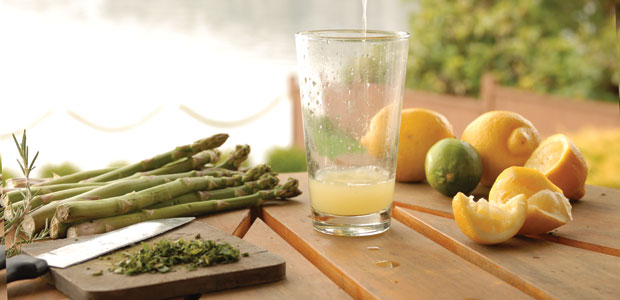Advertisement
BBQ 101
Let the grilling begin!

It may well be a prehistoric throwback, but it seems that to the male of the species, an open fire and charring meat out of doors go together like Hockey Night in Canada and a six-pack.
With June being the official kickoff for barbecue buffs, here are some tips to ensure you have a healthy and safe season.
Any time a protein-rich food is blackened, carcinogens are produced. This occurs when meat is roasted in the oven, fried on top of the stove, or barbecued over an open flame. Most novice barbecuers cook on high heat and go far beyond blacken–closer to charcoal.
To reduce this carbon overload, it’s important to marinate any protein that goes on the grill with ingredients that are high in antioxidants, such as lemon juice, extra-virgin olive oil, garlic, and fresh or dried herbs. Follow this by cooking on medium–not high–heat.
BBQ Food Safety
Keep your grill clean by superheating barbecue after cooking to burn off excess food, and then scrape off debris.
Wash hands before and after handling raw or cooked meat.
Use a clean plate to place cooked meat on; raw and cooked don’t go together.
When cooking meat, fish, poultry, or pork, test for doneness by using a food-grade thermometer.
BBQ FAQ
Q: Which type of barbecue is better, charcoal or gas?
A: From a health standpoint, it’s better to cook over gas. The extra smoke from charcoal can produce more carcinogens.
Q: Lid up or down?
A: Barbecues are really outdoor ovens, so cook with the lid down.
Recipes




